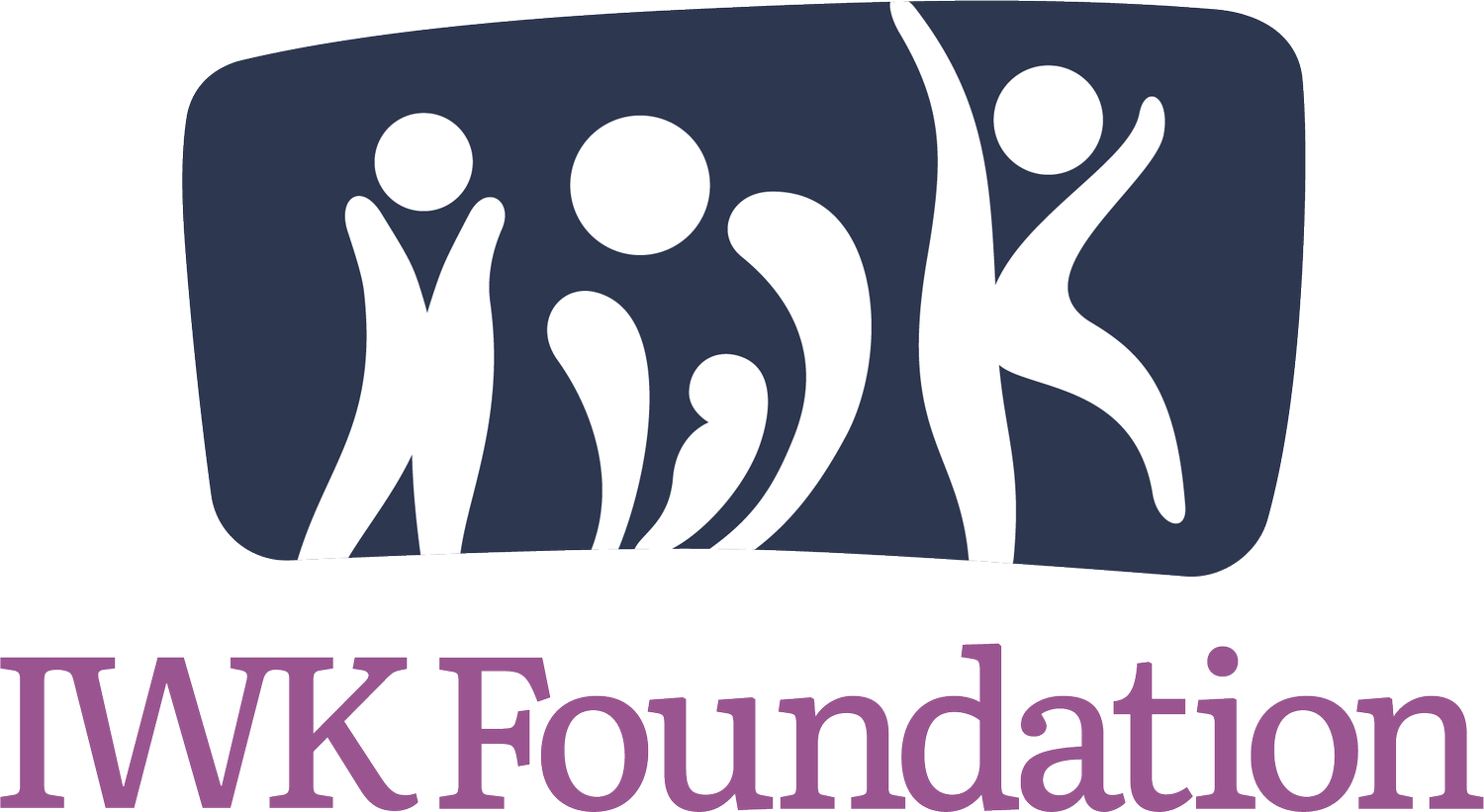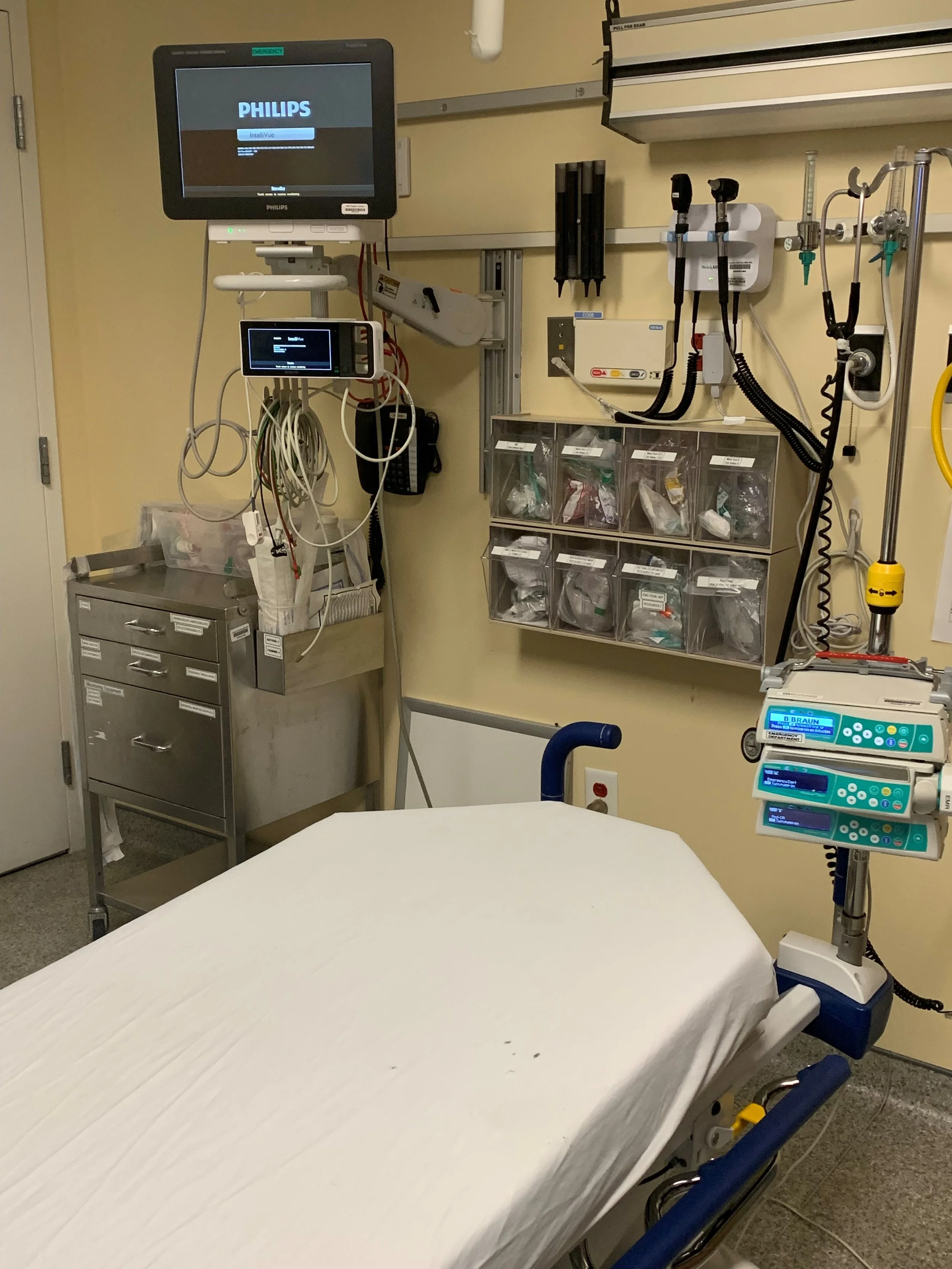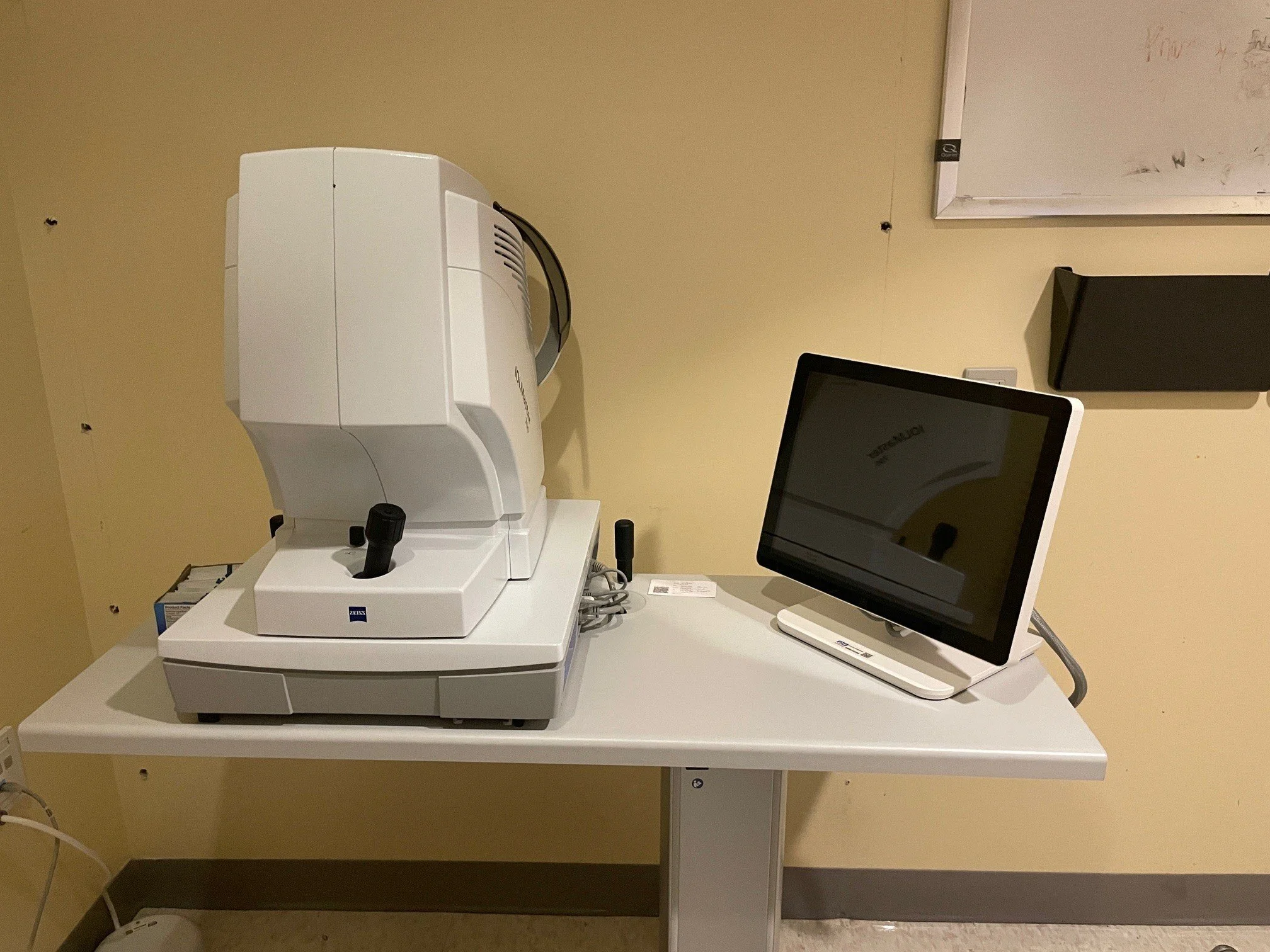Your Generosity in Action
At the IWK, every piece of specialized equipment and innovative research project plays a vital role in delivering exceptional care for patients and families.
Let’s celebrate a few of the many ways you, our donor community, made a difference this past year. Your generosity makes a lasting impact both today and for years to come.
Life-Saving Equipment for Critically-Ill Children & Youth
Supporters of the 2024 Kent Great Big Dig helped purchase critical care monitors and stretchers for the new IWK Emergency Department. These monitors allow staff to track patient vitals from a central workstation to follow trends and changes in the patient’s condition. The stretchers, equipped with IV poles and oxygen tank holders, ensure patients receive the medication they need at the bedside or during transport.
The IWK’s First
Optical Biometry Machine
Through a year-long fundraising campaign, the Lions Clubs of Nova Scotia helped purchase the IWK’s first Optical Biometry Machine (OBM). This non-invasive device is equipped with the latest technology to measure the size of the eye in preparation for cataract surgery. The OBM provides immediate results while also helping to shorten a patient’s visit at the IWK.
A Fleet of New
Anesthesia Machines
Thanks to donor generosity, new anesthesia machines have been purchased to help replace the existing fleet at the IWK. These machines are used in operating rooms to ensure patients can be safely put to sleep while their vitals, such as heart rate and blood pressure, are carefully monitored. Thank you to those who supported our 2024 year-end campaign to purchase this urgently needed equipment. A special thank you also to the Nova Scotia Liquor Corporation for purchasing additional anesthesia machines for the IWK.
Your Impact, When and Where It’s Needed Most
Life is unpredictable—and so are healthcare needs. That’s why gifts to the IWK’s Area of Greatest Need are so powerful. Your support gives the IWK the flexibility to respond where it matters most—whether it’s advancing groundbreaking research, investing in life-saving technology, or creating welcoming care spaces.
From state-of-the-art equipment to critical research, here are two powerful examples of what is possible at the IWK because of donor support.
Guiding the Way Forward for
Patients with Inflammatory Bowel Disease
Did you know that the Maritimes has one of the highest rates of inflammatory bowel disease (IBD) in the world? Because of donors like you, the IWK now has the equipment to guide the way forward in how care is delivered for children and youth with IBD.
The new Transabdominal Ultrasound allows a gastroenterologist to look for bowel inflammation while the patient is in the clinic for a follow-up visit. Radiation, sedation, or bowel preparation are not required, making it a more comfortable experience for children and families.
Pictured: Dr. Dave Burnett, Pediatric Gastroenterologist, IWK Health
Flipping the Script and Improving Pain Management for Women
Through donor generosity, the IWK Foundation is proud to help support Dr. Laura Kennedy, a Health Systems Impact Fellow at the IWK, whose research is focused on better understanding how pain is assessed, understood, and treated in women.
“Providing pain care is essential to patient safety,” says Kennedy. “The IWK can lead in creating supportive environments for pain management for women’s health.”
Dr. Kennedy is the first Impact Fellow at the IWK focusing on women’s pain, building on the work being done at the IWK to improve pain management for women. Recommendations for assessment and treatment include assessing pain scores during procedures, administering medication, and using distraction techniques.
This important research is also situated within the gender health gap, which reveals differences in men’s and women’s health due to sex and gender.
“Part of the reason why the gender health gap persists is because of underfunding and the underrepresentation of women in research. We want to flip the script and improve experiences for women.”
Dr. Laura Kennedy






